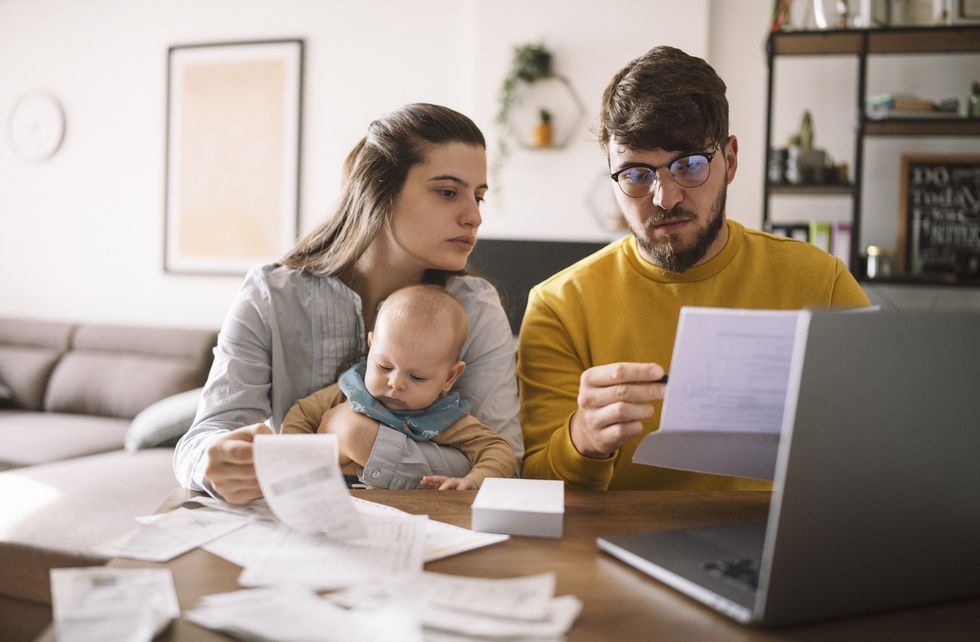The scheme introduced by the Conservatives will come to an end in March next year
GETTY
The scheme introduced by the Conservatives will come to an end in March next year
Don't Miss
Most Read
Trending on GB News
Chancellor Rachel Reeves is set to end the stamp duty discount in the upcoming budget, potentially increasing costs for homebuyers by up to £2,500 from next year.
The scheme, introduced by Liz Truss' short-lived Government in 2022, temporarily raised the house price thresholds at which stamp duty is paid from £300,000 to £425,000 for first-time buyers.
However, Reeves is expected to lower the threshold back to £300,000 from April 2025, meaning thousands of buyers will now have to pay the property tax.
The move is anticipated to particularly impact first-time buyers and those in southern England, with around 309,000 additional purchases a year becoming subject to the tax.
Kirstie Allsopp, the property guru, called the levy “a monster” and said the changes would cause “chaos” while failing to “claw back any money” for the Government
She told Times Radio: “It’s become so complicated that I can no longer tell anyone what they would be paying in stamp duty. I have to go on to the stamp duty calculator and calculate it with the government calculator per property and I have to put in all the different circumstances. Stamp duty has become a monster.”
She added: “It won’t claw back any money. Stamp duty is a dead tax.”
 Homebuyers are looking for ways to avoid stamp duty GETTY
Homebuyers are looking for ways to avoid stamp duty GETTY Industry experts forecast that the number of first-time buyers paying stamp duty will triple from eight percent to 26 per cent when the threshold returns to £300,000.
The expected changes are predicted to spark a rush in property sales over the coming months and into the New Year as buyers attempt to avoid the increased costs.
In London, where property prices are significantly higher, the proportion of first-time buyers paying stamp duty will rise to 71 per cent.
A spokesperson for Zoopla, the property sales portal, said: "Those looking to purchase their first home should act this Autumn if they are to avoid paying more in stamp duty, particularly if they are looking to purchase a home in Southern England."
"Those not looking to purchase until after 1st April, should make sure they build the additional stamp duty fees into their plans and account for it in their overall budgets," they added.
From April 2025, the expected stamp duty rates will be zero for homes up to £125,000, two per cent for those between £125,001 and £250,000, and five per cent for properties ranging from £250,001 to £925,000.
For first-time buyers, the rates would be zero on properties up to £300,000 and five per cent on those between £300,000 and £500,000.
This means a first-time buyer of a £400,000 property in England would face a stamp duty bill of £5,000, up from zero today.
The changes are expected to generate an annual £1.8billion for the Treasury by 2029.30.
In Scotland and Wales, different thresholds and rates apply, with Scotland's starting at £145,000 and Wales at £225,000 for main residences.
Despite warnings from property experts and economists, it appears the Government is set to proceed with reversing the stamp duty cuts.
Adam Corlett, principal economist at the Resolution Foundation, said: "The Chancellor will need to announce significant tax rises in her upcoming budget, but there is one tax cut she should announce too — making permanent the increased threshold for paying stamp duty."
Corlett added: "Stamp duty is a fundamentally bad tax that restricts people's ability to move, and there are plenty of other places where Rachel Reeves can look for tax revenue."
The Resolution Foundation warned that there would be a short-term rush of people attempting to complete property deals before the March deadline.






